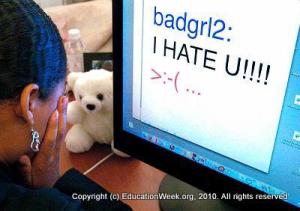 Today, more than 50% of Americans have at least one active social media account. Facebook is the world’s largest social media platform with over 1 Billion active users each month. Twitter continues to grow as an important digital information outlet with over 140 million active users posting 340 million Tweets a day. Tumblr, Pintrest, Group Me, YouTube, LinkedIn and Word Press are other key players in the untamed Wild West of human digital life. So it comes as no surprise that there are outlaws in the online Wild West, committing crime and using social platforms with malicious intent. There always are criminals in every new frontier who prey on victims. Luckily, the use of social media evidence is becoming a recognized standard in courtrooms nationwide.
Today, more than 50% of Americans have at least one active social media account. Facebook is the world’s largest social media platform with over 1 Billion active users each month. Twitter continues to grow as an important digital information outlet with over 140 million active users posting 340 million Tweets a day. Tumblr, Pintrest, Group Me, YouTube, LinkedIn and Word Press are other key players in the untamed Wild West of human digital life. So it comes as no surprise that there are outlaws in the online Wild West, committing crime and using social platforms with malicious intent. There always are criminals in every new frontier who prey on victims. Luckily, the use of social media evidence is becoming a recognized standard in courtrooms nationwide.
 Social media evidence is increasingly being used to win verdicts on behalf of Plaintiffs in both civil and criminal suits. This trend demonstrates a positive, albeit slow, progression by the judicial system to recognize relevance that social media plays not only in everyday life, but also in criminal and civil offenses across the United States. When ever a new technology emerges for providing evidence of criminal behavior, there is a “lagging effect” on the side of law enforcement and the court system to understand and recoginze its validity. This was true of DNA evidence, which first emerged as a solid legal tool in the 1980s, but took 10+ years to become a recognized standard by police and the courts.
Social media evidence is increasingly being used to win verdicts on behalf of Plaintiffs in both civil and criminal suits. This trend demonstrates a positive, albeit slow, progression by the judicial system to recognize relevance that social media plays not only in everyday life, but also in criminal and civil offenses across the United States. When ever a new technology emerges for providing evidence of criminal behavior, there is a “lagging effect” on the side of law enforcement and the court system to understand and recoginze its validity. This was true of DNA evidence, which first emerged as a solid legal tool in the 1980s, but took 10+ years to become a recognized standard by police and the courts.
As an anti-cyber abuse advocate, and a survivor of cyberharassment, I’ve seen first hand how law enforcement, attorneys and judges struggle with social media evidence in cases of harassment, stalking, defamation and invasion of privacy. Arguments arise regarding First Amendment and Privacy rights. Courts have had discomfort dealing with postings, and their impact on case law. How does one distinguish between as satire, or the right to comment on “public figures“, vs. defamation in the digital world? In the past, the judiciary often minimized the damage of online harassment and defamation online. Thankfully this is changing. The growing use of digital media as a primary platform for information and communication make crimes like cyberbullying, cyberharassment, online defamation and revenge porn even more damaging than those committed offline. My philosophy is that if it’s illegal for an individual to engage in certain illegal behavior in person, by mail or over the phone, then he/sh should NOT be allowed to do it online…where the audience is larger, the rate of “misinformation dissemination” is faster, and it is harder to undo bad behavior. Nationwide, judges, DAs and police are starting to adopt the same philosophy.
A recent article entitled, “Authentication and Access for Social Media Evidence“, written by lawyers from the firm of Jenner and Block, outlines the two main criteria that social media evidence must meet to be admissible in court:
- It must meet basic standards of Authentication. This means, the user account must tie back to a specific user based on the “preponderance of evidence” in civil cases, or “beyond a reasonable doubt” in criminal cases.
- Accessibility. It must be stored and be accessible via typical methods of discovery. This means that if I subpoena Facebook for information on an alleged online stalker, the company’s legal or security team should be able to retrieve and provide me with an official record of the activity.

